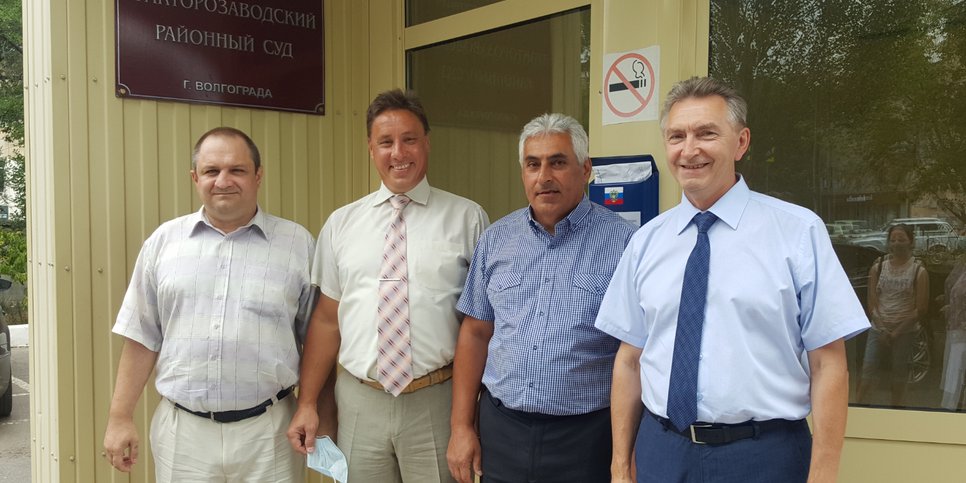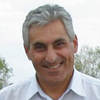In the photo: Denis Peresunko, Sergey Melnik, Igor Egozaryan and Valery Rogozin
In the photo: Denis Peresunko, Sergey Melnik, Igor Egozaryan and Valery Rogozin
A State prosecutor requested an unprecedented sentence for Jehovah's Witnesses from Volgograd — nine years in prison for practicing one's faith
Volgograd RegionOn March 9, 2021, during the debate in the criminal case against four Jehovah's Witnesses in Volgograd, assistant prosecutor Anna Myagkova requested 9 years in a penal colony for Valery Rogozin and Denis Peresunko, and 7 years for Igor Yegorzaryan and Sergey Melnik.
The previous anti-record belonged to the prosecutor from Abakan Svetlana Shestakova, who asked 8 years in prison for the believer Roman Baranovskiy.
All four Volgograd believers are charged with organizing the activities of an extremist organization (part 1 of article 282.2 of the Criminal Code of the Russian Federation), and Valeriy Rogozin and Denis Peresunko are also charged with financing it (part 1 of article 282.3 of the Criminal Code of the Russian Federation). The men do not admit their guilt and claim that their faith is incompatible with extremism. The debate in the Traktorozavodsky District Court of Volgograd will continue on March 18.
The persecution of Jehovah's Witnesses on religious grounds in Russia has evoked unceasing criticism from both the Russian human rights community and the international community. Shortly before the start of the debate on the case of Jehovah's Witnesses in Volgograd, the British Ambassador to the OSCE Permanent Council, Neil Bush, expressed deep concern over violations of the rights of believers.
“We must highlight - unfortunately not for the first time - the concerning situation of Jehovah’s Witnesses in the Russian Federation. The 2017 ruling of the Russian Supreme Court, which rejected the appeal against the decision to categorise Jehovah’s Witnesses as “extremists”, criminalised the peaceful worship of 175,000 Russian citizens and contravened the right to religious freedom that is enshrined in the Russian Constitution, and in multiple OSCE commitments.”— Neil Bush said at a commission meeting on March 4, 2021.“— “Since that 2017 ruling, we have witnessed an increasing number of detentions, criminal investigations and prosecutions of Jehovah’s Witnesses across Russia, including the arrest and sentencing of Valentina Baranovskaya and Roman Baranovskiy on 24 February, and the sentencing of Aleksandr Ivshin on 10 February. Such cases reinforce the impression of an organised campaign of persecution against Jehovah’s Witnesses.”




